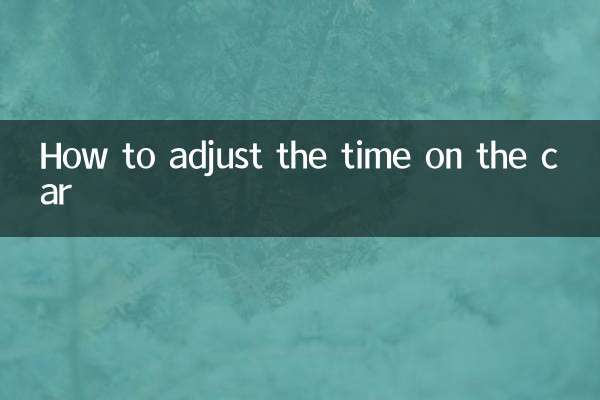What happens if brake fluid leaks? Analysis of hot topics and hot content on the entire network in the past 10 days
Brake fluid is a key component of the vehicle's braking system. Once it leaks, it may cause serious consequences. This article combines hot topics and hot content on the Internet in the past 10 days to analyze the hazards, symptoms and countermeasures of brake fluid leakage in detail, and presents relevant information through structured data.
1. The dangers of brake oil leakage

Brake fluid leakage will cause the braking system to fail and directly affect driving safety. Here are some common hazards that are hotly discussed across the internet:
| Hazard type | Specific performance |
|---|---|
| Brake failure | The brake pedal becomes soft or is depressed, and the vehicle cannot slow down. |
| Extended braking distance | More force on the brakes is required to achieve the desired effect |
| Brake system corrosion | Brake fluid is highly absorbent and may corrode metal parts |
| cause fire | Brake fluid is flammable and may catch fire if it leaks into hot parts. |
2. Common symptoms of brake fluid leakage
According to car owner discussions and repair cases in the past 10 days, brake fluid leakage is usually accompanied by the following symptoms:
| Symptoms | Possible reasons |
|---|---|
| Brake pedal becomes soft | Insufficient oil pressure and air entering the brake system |
| Brake fluid level drops | Leakage in oil pipe, slave pump or master cylinder |
| Oil stains on the ground | Oil pipe rupture or seal aging |
| The brake warning light comes on | The liquid level sensor detected an abnormality |
3. How to deal with brake fluid leakage?
Regarding the problem of brake fluid leakage, the most popular suggestions on the Internet are as follows:
1.Stop and inspect immediately: After discovering an abnormality, you should pull over and check the brake fluid level and leakage point.
2.Contact professional maintenance: Do not handle it yourself. The brake system needs to be inspected by a professional technician.
3.Regular maintenance: It is recommended to replace brake fluid every 2 years or 40,000 kilometers to avoid aging and leakage.
4. Related hot events across the network in the past 10 days
The following are recent popular discussion events related to brake fluid:
| event | heat index | Main discussion content |
|---|---|---|
| A certain brand recalls vehicles with defective brake hoses | 85% | Car owners collectively complained about brake fluid leakage |
| Analysis of high-speed brake failure accidents | 78% | Experts explain the emergency response to brake fluid leakage |
| DIY brake fluid replacement tutorial controversy | 65% | Netizens debate the safety of self-operation |
5. Measures to prevent brake oil leakage
Combined with data from the entire network, the following points should be noted to prevent brake fluid leakage:
1.Check fluid levels regularly: Check the brake oil reservoir fluid level every month to see if it is within the normal range.
2.Avoid mixing oils: Mixing brake fluids of different grades may cause chemical reactions.
3.Pay attention to vehicle abnormalities: If you find that the brakes have become soft or make abnormal noise, send it to inspection in time.
Summary
A brake fluid leak is a serious vehicle failure that can lead to brake failure or even an accident. By analyzing the hot content on the Internet in the past 10 days, we sorted out its hazards, symptoms and response plans. Car owners need to be vigilant and perform regular maintenance to ensure driving safety.

check the details

check the details